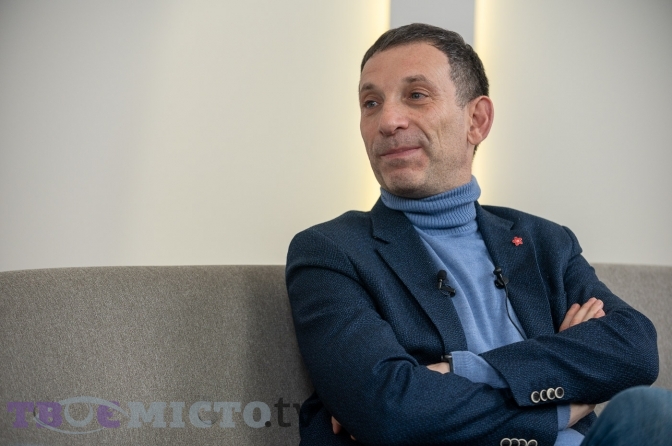
Vitaliy Portnikov: «Ukrainians have always made their choice»
[For urgent updates please follow Ukrainian Freedom News on Telegram]
How can this war be ended and when would it happen?
No one ever has an answer to this question, even those who are answering it. There is such an old Soviet film «At 6 o’clock in the evening after the war». While watching, you get the impression that it was filmed in 1946-47, because in the finale, the heroes meet in Moscow on Victory Day, when fireworks are fired over the Kremlin. But this movie was shot in 1943, then there was only an idea that something like this would happen in the future. Nevertheless, even at that time, some cities were liberated, there were fireworks in Moscow, and everyone could imagine that this is how the war would end. But even if you and I picture Kyiv with fireworks, we still won’t be able to answer exactly how this war will end.
The Odesa City Council finally voted to dismantle the monument to Catherine II. There was an idea to erect a monument to Vytautas, the Grand Duke of Lithuania in the XIV-XV centuries, who was also related to Odesa. But it found no support. Vytautas has no fewer reasons than Catherine II to claim the title of the founder of this city, doesn’t he?
Actually, fewer. Catherine II somehow created the status of Porto-franco. The Odesa we know arose as an imperial city, so we cannot erase it from history. The idea of Odesa is the idea of a free port. It was the second city of the Russian Empire, but in the current Ukrainian context, this fact cannot play a big role. Trieste was the first port of Austria-Hungary, but Italians are not at all proud of it being an Austrian port. They are proud of the multicultural nature of the city, the fact that it has always been at the crossroads of civilizations. Trieste is no different from Odesa in this regard, its inhabitants have always perceived themselves as Trieste residents, not as Austrians. There is no cult of Austrian emperors there. Although it’s obvious that without Austria, Trieste wouldn’t have been such a great city in the history of Europe in the XIX century. It wouldn’t have been the city in which Joyce wrote «Ulysses», where one can breath in a special way. But the question arises: is this still the merit of the townspeople or the emperor? It is necessary to understand that such cities cannot be created without residents.
Odesa was created primarily by Odesans. In fact, the development of Odesa is also the result of oppression in other parts of the empire. We always talk about the special Jewish character of the city and the fact that Odesans still do not speak Russian, but use Russian constructions translated from Yiddish. But would the Jews of the Russian Empire go to Odesa if they were allowed to settle in other cities? I belong to those 1.5% of the descendants of the Russian Empire inhabitants who had Jewish origin and could live in big cities. My great-grandfather could live in Kyiv, but everyone else could live only within certain boundaries. It was a tragic camp in which there were a huge number of people who had no chance to develop trade or study, because there were interest rates. They did not have the opportunity to own land in an agricultural country. It was poverty, disaster, and eternal wandering, people lived and died in poverty.
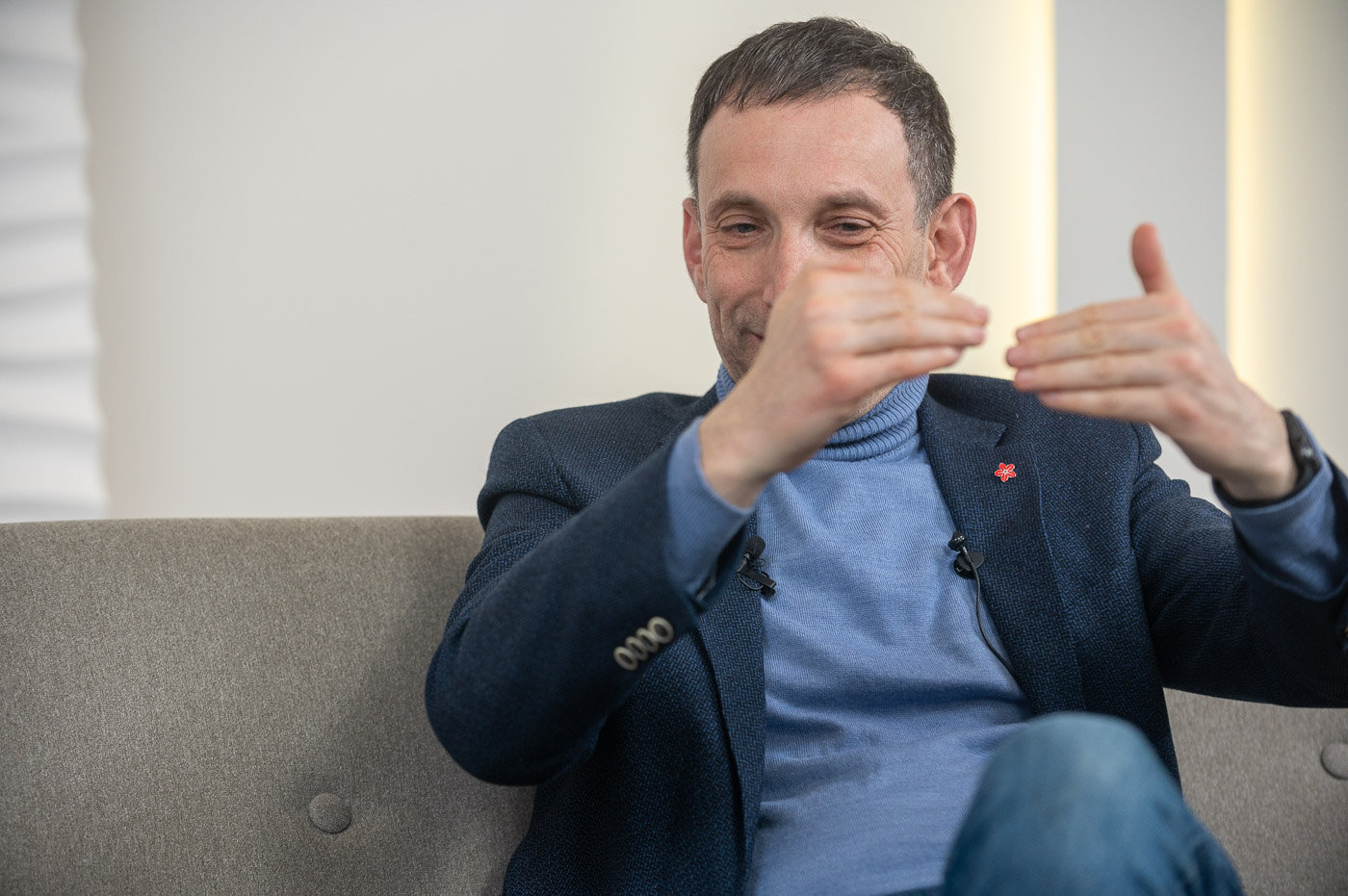
From other roots, I also belong to that part of the Jewish population of the Russian Empire, which was allowed to live on the former territory of the Polish-Lithuanian Commonwealth. So I can imagine how the life of my grandfather’s family from Malyn district in the Poltava region was different. His father had already obtained the opportunity to at least rent land from my grandmother’s family from Kyiv. What were [other Jewish] people to do then? Of course, they were going to Odesa. It was one of the few opportunities to survive. What if these people went to some other cities? They left by the millions for the USA: all major American companies, cinematography and Hollywood, scientific and technical achievements, all the progress of the late XIX – early XX centuries were created by people who left the Russian Empire. And there, they did much more than in Odesa. They created modern America.
Imagine if they went to St. Petersburg, Moscow, that they were allowed to do so not only because they are merchants of the first guild. What if they were permitted to develop in the country where they lived and whose subjects they were? What would this country look like? It might not have been such a horror, it could be progressive. But in the real situation, people went either to Odesa to become travelling salesmen and bandits, followers of Mishka Yaponchik [an infamous Odesa criminal in Soviet times], or to the Central Committee of the Bolsheviks, the party of Socialist-Revolutionaries. People who could not reach the latter wanted to destroy the empire. Therefore, Odesa was simply an exception, a city where people were allowed to breathe freely.
This observation shows the importance of having an elite. The same can be said about the elite of the Ukrainian People’s Republic, leaders who went abroad to Canada, the USA, Europe, and didn’t get lost. Their descendants fit into society because they were cheerful, well-educated, and motivated people.
Not only elites, or ordinary people, but also farmers who created Manitoba [a Canadian province, one of the most important centres of Ukrainian culture outside of Ukraine]
Ukraine was very bloodless in the XX century in this sense.
Of course. Let’s take the model of some American city. For example, Chicago, where there are Ukrainians who left because they could not breathe freely. Poles who left when there was no Poland or when they weren’t allowed to enter Poland. Jews who left. Each of these peoples created their own incredibly powerful centres of civilisation. The Poles were able to restore their statehood, so it already looks like a diasporic centre (now the «Ukrainian village» in Chicago looks like a diasporic centre). Not mentioning Canada. At the same time, Soviet Ukraine was a fake Ukraine.
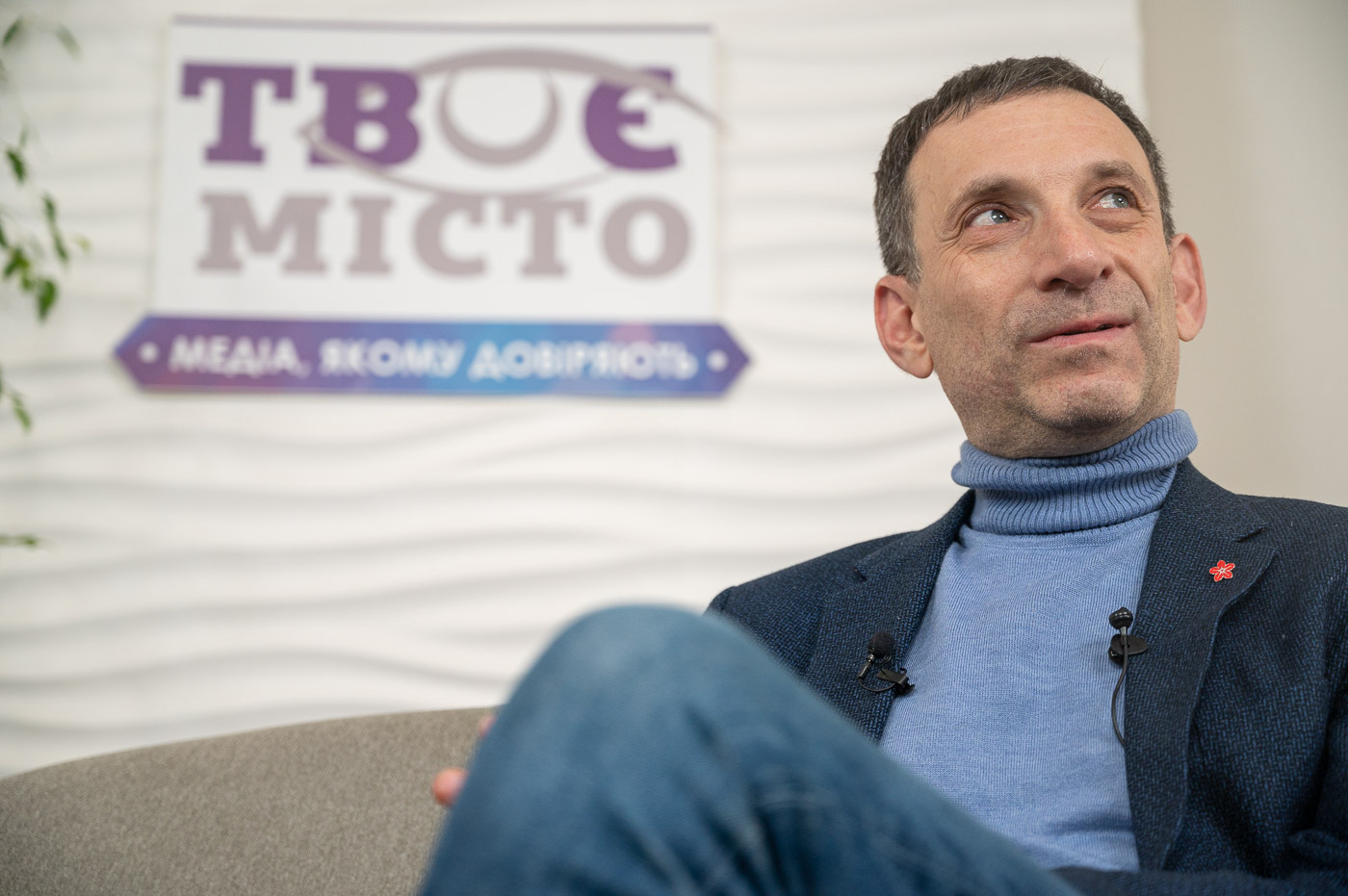
Here, in these territories, there was a kind of Ukraine that existed as a rhizome, an external structure.
It was like that until 1945. After that, Ukraine was already in hiding with its underground Church, under the spotlight of [Soviet government’s] attention to any national sentiments. To understand the state we were in, I will give the following example. Volodymyr Sosyura, who was a completely Soviet poet, wrote the Soviet poem «Love Ukraine», which asserted the essence of a fake Ukraine, the Soviet one. Nevertheless, he was harassed for this poem, and it led him to a heart attack. He did not understand at all what they wanted from him. There was a time when Jewish writers were persecuted and shot just for being Jewish. And at the same time, the song «Russia-mother, beautiful country, Soviet land – my land» was broadcast on all the airwaves of the Soviet radio – a hit performed by Sergei Lemeshev, the tenor of the Bolshoi Theater. And no one was harassed for this hit, there were no resolutions of the Party Central Committee. Because after the Second World War, they definitely understood that the Soviet Union was Russia, and there was no need for any Ukraine.
Who are the Russians now? Buryats, Yakuts, Chechens who come here and whom we see on the battlefields?
Russians are the so-called «Great Russians», residents of the Russian provinces of the Russian Empire. But this is a normal situation, it’s the building of a political nation.
The question that Russian politician Vladislav Surkov formulated before the war arises now: Russia is trapped within its current borders, and the Ukrainians still need to prove who they are. Russia is going to test the strength and capacity of Ukrainians as a political nation, as a state.
Since 1991, after the declaration of independence, I’ve been saying that Ukrainians must pass two exams: the first one is an exam on their own ability to create a state. I believe that it has already been drafted several times, the uprising and this war show that Ukrainians want to have their own state; the second exam is that Ukraine must demonstrate it can exist within the borders of the Ukrainian SSR by 1991. Only history can tell what the answer to the second exam will be, because we are currently in a war for territories.
Is this not an identity war?
For us, it is for identity, and Russians fight for territory. Our identity is of no use to them, they are ready to expel us all, because they want the territory but do not need the population.
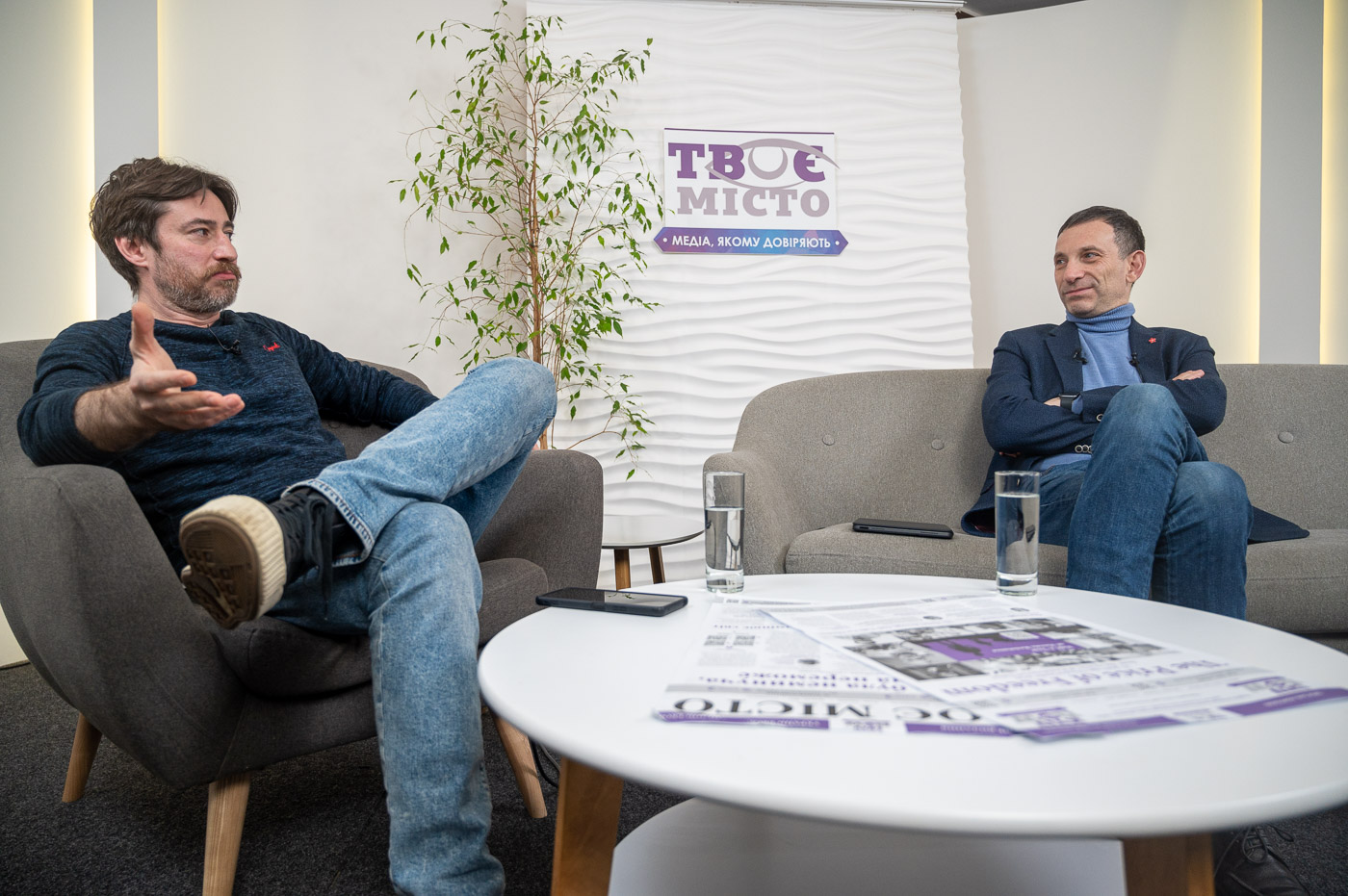
Why do they need this territory?
Everything is very simple. The State Security Committee of the Soviet Union fought for decades to gain power in this state and inherit the Communist Party. And when, in the end, it achieved this goal, it turned out that it didn’t get the entire territory. In the circles of Lubyanka [headquarters of the Russian security service], this is called the «error of 1991». They underestimated the scope of the national movements, which they purposefully fueled in the late 1980s and early 1990s in order to destabilize the situation, so that the communist party apparatus would not have enough strength to react to everything. This was a policy of «small cuts», typical of the Chekists [informal name for Emergency Committee of the Soviet Union, part of the country’s security service]: Nagorny Karabakh, popular fronts of Latvia... I am not saying that they created these [movements], rather they did not destroy them and provided the conditions in which all this could work. The KGB itself created an interfront for every popular front in Latvia, Lithuania, and Estonia. They supposedly gave the Crimean Tatars the opportunity to leave their homeland, but at the same time, they created a pro-Russian movement. This was the case throughout the Soviet Union, and even party workers did not understand what was happening. The former first secretary of the Central Committee of the Communist Party of Uzbekistan, Rafik Nishanov, became famous for the story that in his republic, there was a fight over strawberries at the market. But actually, it was a conflict [on the ethnic ground] regarding Meskhetian Turks.
Security services ran every personal dossier they had. The party played along with them, because it believed that it helps these conflicts. They expected it will keep the Soviet republics in the orbit of Moscow and demonstrate: «You see, without us you can only have a disaster.»
But 1991 led to what it led to. And after that, their task was to restore territorial integrity. Of course, including Ukraine. In 1991, I talked with Boris Yeltsin about the independence of the RSFSR (Russian Soviet Federative Socialist Republic). I thought it was a delusion: Russia couldn’t be independent from the Soviet Union, because they were one. I believed that the Soviet Union could be refounded by Russia without Ukraine, because we had already declared independence, but it could be restored including other republics. There were republics ready for this that did not declare independence. Belarus simply gave its Declaration of Sovereignty the status of constitutional law. Does this mean it has declared independence? I’m not sure. Did the Russian Federation hold a referendum on independence, does Russia have an act of independence? No, and such republics were enough to re-establish the Soviet Union.
Among other things, Boris Mykolayovych Yeltsin said: if he is the head of a state without Ukraine, he would be the president of an Asian state, but he wants to be the president of a European one. There was no Putin then. Another thing is that Yeltsin obviously intended to do it not militarily, but by political and economic means. 1994 and Ukraine’s second President Kuchma are evidence of this.
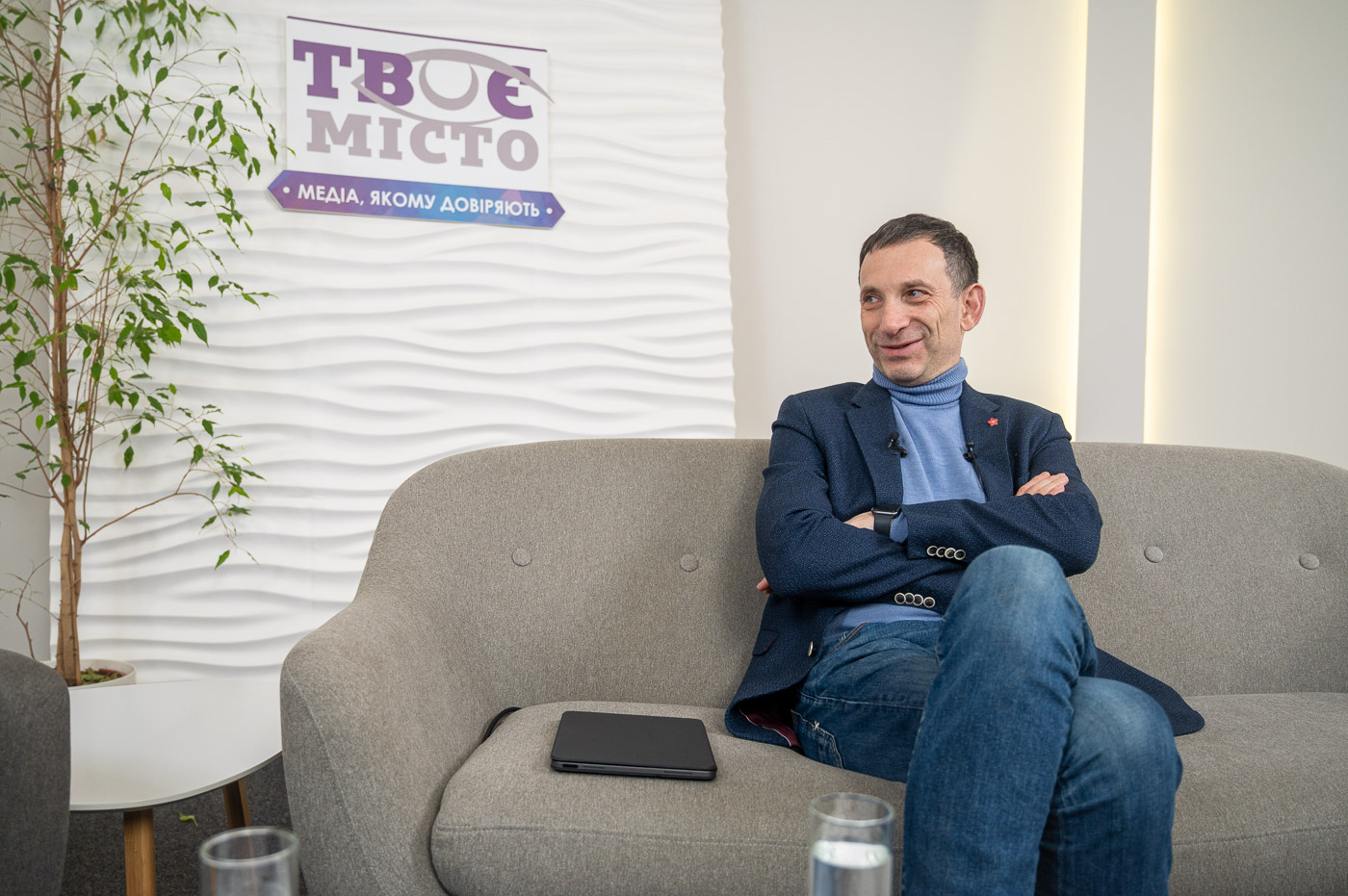
For Russia, Ukraine is an opportunity to be more prominently present in the European concept. Not Belarus, because it is a small territory that has borders only with Poland and Lithuania. But Ukraine borders with Poland, Hungary, Slovakia, Romania, and Bulgaria across the Black Sea. And it will be possible to threaten all these countries, being in close proximity to their borders. When the Hungarian uprising was being destroyed, the Soviet army was marching from Transcarpathia. The Poles saw a military district right here, from here the army went to destroy the «Prague Spring». Nicolae Ceausescu always remembered that the Russian military district was nearby. All of a sudden, the Russians found themselves far away from all this, and they itched. Poland and Lithuania and Latvia can be threatened, but this does not make Russia stronger. It is simply a reminder that it has lost some of its territory. But with Ukraine, it becomes a contender for the role of gendarme of Central Europe. They have a lot to think about. This is all an archaic attitude to politics, but it has always been like that in their minds.
The point is not that Russia is tight within its borders, but that it wants to return the historical imperial borders. The idea is simple: «We won the Second World War, we did not lose any wars. The lost Cold War was not a war, but a clash of civilizations, and we agreed that your option of economic development is correct. Why did you take the territory from us after that? We agreed in Yalta about what is ours and what is yours (this is what Putin tells Biden in plain text). We could live perfectly, balancing China. Just give us what’s ours.» This is written in Russia’s proposals for not joining NATO, which were made public on the eve of the attack: «Guarantee that the former Soviet republics cannot be part of NATO. Why? So that, when we integrate them, you don’t have obligations to them and don’t make a fool of yourself, because there could be a nuclear conflict.»
And one more idea: «Take away new heavy weapons from those countries that you promised us in Yalta, let them understand that they are part of our sphere of influence. Let them stay in NATO, but they should always remember that they’re ours, not yours. Let’s just go back to Comrade Stalin’s meeting with Roosevelt and Churchill, and then with Truman and Attlee. We will live normally, because we have not lost anything to you. If you think otherwise, then let’s fight, let’s see who loses.» That’s all the [Russian] logic, it’s simple.
If Ukraine succeeds in entering its borders or at least becoming a part of NATO, will Russia be able to survive it, or shouldn’t we worry about it at all?
I think that we should not worry about it, and they will survive it, because it is a mythological thing. The attack was preceded by a long article written by the head of the Carnegie Center’s military program, Dmitry Trenin, who has always been considered close to influential Russian circles. He wrote: «Russia is an empire even without Ukraine, its territory does not add or take away anything from our capabilities as an energy superpower. We have a huge territory, and several marginal areas do not add anything to us, because nothing happens there, there is no Microsoft or Apple. The number of the population now is incomparable to what it was in Soviet times, it does not significantly change our capabilities and resources.»
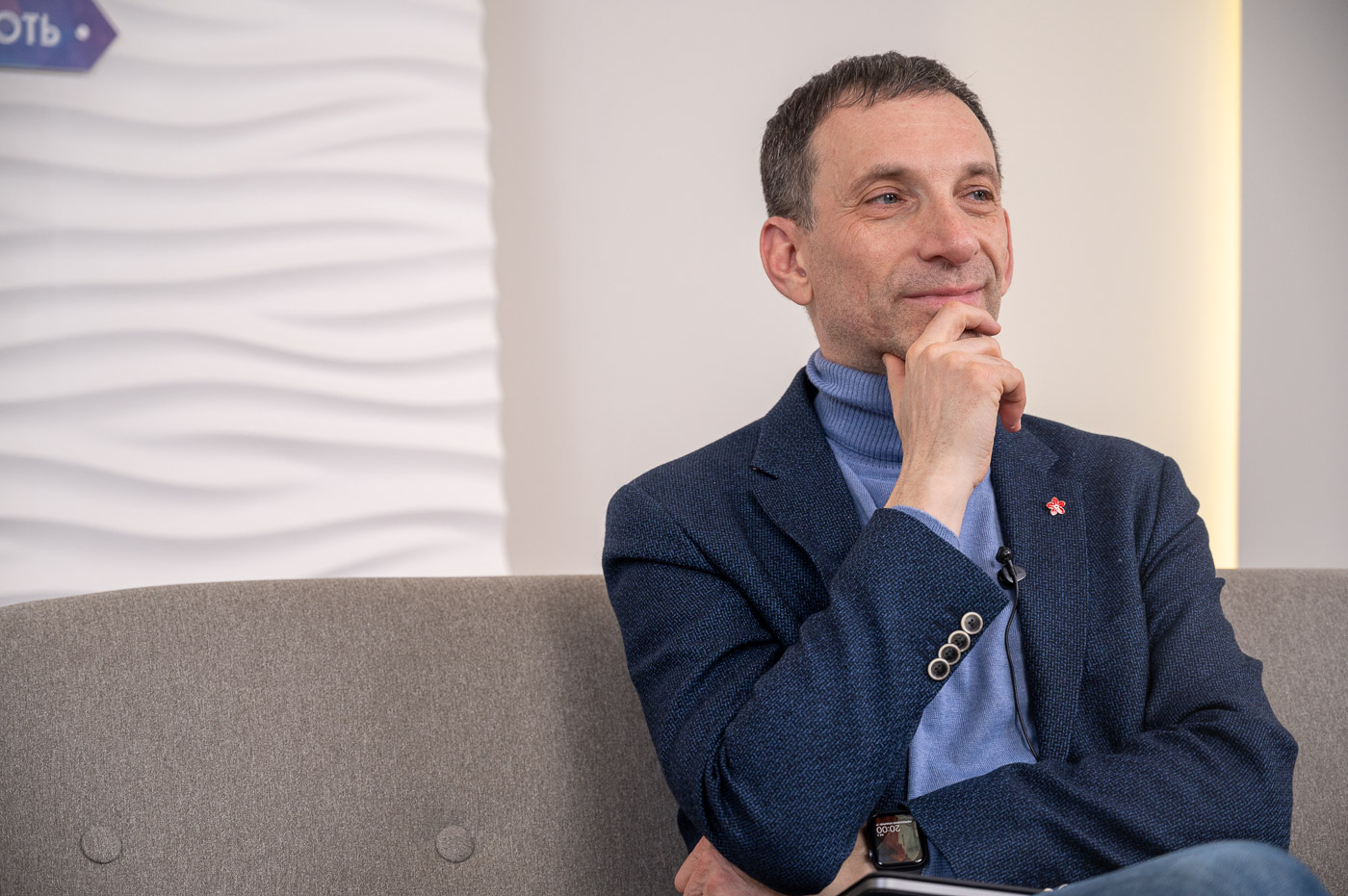
Russia can perfectly be the way it is without Ukraine, that’s the truth. If Russia does not conquer Ukraine, it will be defeated only in its own head. It may fall apart, but it is not related to the war, rather to some internal processes that we cannot see now, or simply because the Chekist state may exhaust its potential. This is, in fact, a dictatorship of petty officers, who are not quite adequate. In 1999, on the hundred days of Putin’s premiership, I wrote an article and described what Russia would be like under Putin as president, because I believed that he would become one, and I had such information.
But he had a somewhat different reputation then.
For me, he didn’t. I talked to people who knew him well, and I understood what we would expect if he was elected president. I purposefully learned the biography of Francisco Franco, because I believed that Russia would be similar to late Franco’s Spain with controlled state capitalism, without freedom and social activity. The article was published in [then most respected Ukrainian newspaper] «Dzerkalo Tyzhnya», you can read it. I also printed an abridged version of this article in a Russian newspaper. Its editor-in-chief presented a copy of the publication with the article to Prime Minister Putin. And then, I saw that this article became the basis of his pre-election program «Russia 2000» as a candidate for the post of President of the Russian Federation. This was, in fact, the program of the fascist state. This article was a political satire, but he was not horrified – he liked it.
On January 1, 2000, it became known about Yeltsin’s resignation. I was in Geneva then. At that time, there was no place to write, there were no online publications... I was just wondering what was to be next. I opened Putin’s website, which was already created, saw this program there and understood what was happening. I believed that this regime should exhaust itself in 15-20 years, but it turned out to be smarter, more cunning, and it started a war. When such regimes practically run out of energy, they always fuel themselves by starting wars to seize territory. We are now at this stage.
Does this war not necessarily have to be victorious?
It is not necessary, because it allows you to twist everything that twists. Now it looks a lot like the condo Soviet Union. In the early 2000s, during a conversation with journalists, one Russian leader of Putin’s circle asked which economy is better – capitalist or socialist. They answered that, of course, the first one, and proved it on the example of development. And he told them: «No, you don’t understand: both capitalist and socialist are bad, the camp economy is good.» From the point of view of this person, it was a mistake to dismantle it after the death of Stalin and the shooting of Beria [former leader of the Soviet NKVD security service]. Now they are building something similar from an ideological point of view. The books of foreign agents must be kept in a separate room and be handed over [to the citizens] on passport. A law has already entered into force that allows any person to be declared a foreign agent. That is, all the information can be divided into the one provided on passport in the room, and other information. This is a full control over everything.
In July 1991, my colleagues at [the Russian newspaper] «Nezavisimaya Gazeta» and I were invited to a tour in the KGB and asked to provide data: surname, first name, patronymic, home address, telephone number, and actual place of residence. They were preparing for the putsch and were compiling lists of internees. And in order not to work for a long time, it was necessary for the «internees» to inform themselves where to look for them.
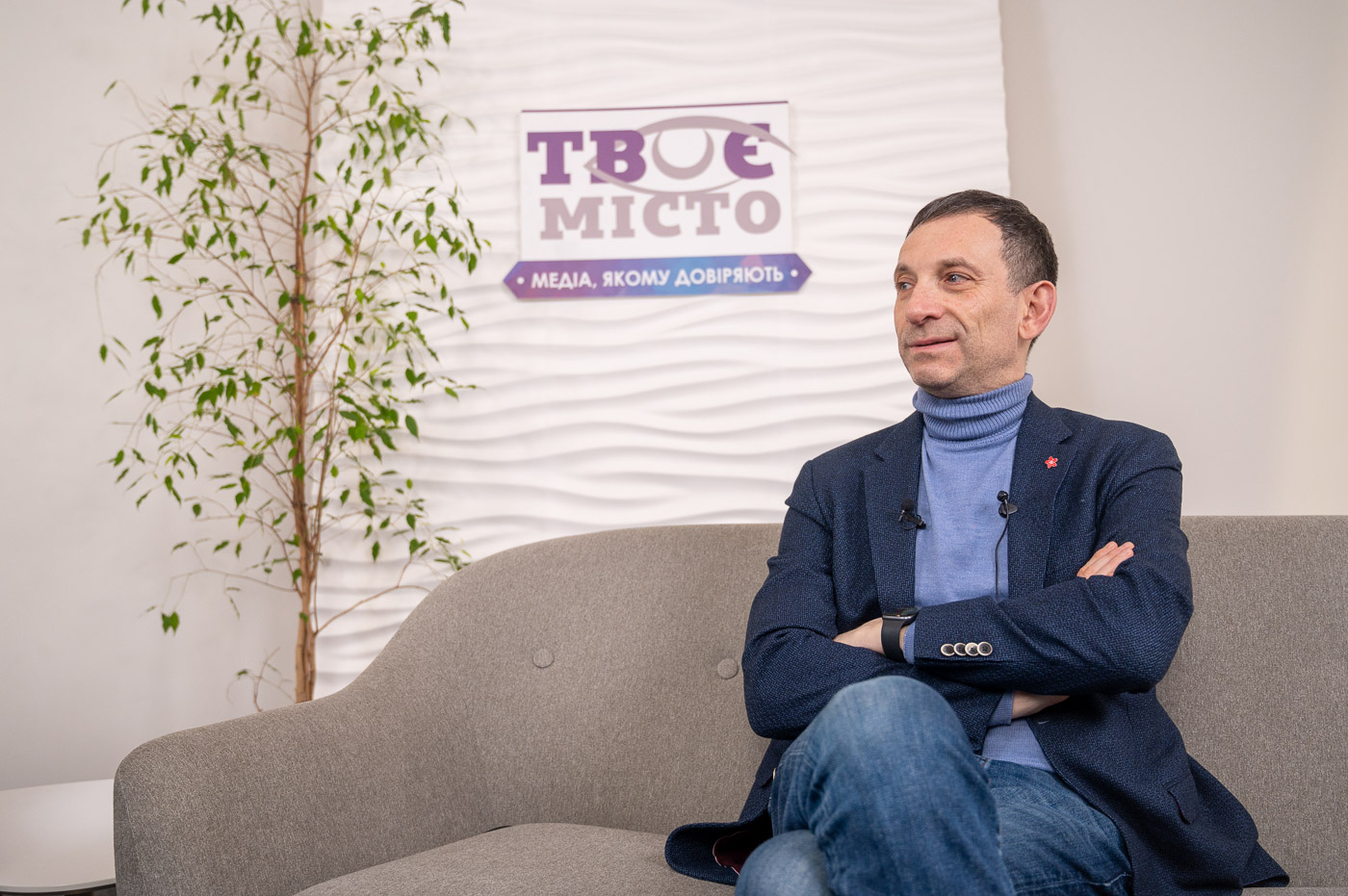
After the victory, can Ukraine try to create a small copy of Russia here? Is this sentiment for the Soviet Union? Can Ukraine be not fully European?
When I wrote the text about late Franco’s Spain, I believed that in this situation, Ukraine could to some extent turn into Salazar’s Portugal. Before the war, it was a real danger. First of all, such a dictatorship requires money, and Russia will not give it to us, because even if it wants to, it will not have it. China definitely won’t give us that kind of money, because it doesn’t need this. Having their own problems, they will not be able to feed [our dictatorship]. There is no China, it exists only in people’s fantasies. China has nothing to do in this region, it only invests in the Chinese. All its investment projects in other countries did not lead to the establishment of stable state regimes on authoritarianism.
Can China be an alternative to the European Union?
It’s possible in someone’s delusion, but they won’t give money. Money can be taken only in the West, I would even say that only in the USA. Because the EU, most likely, will not have the opportunity to raise such an economy from the ruins.
Is our road to a bright future lined with red flags?
Absolutely, we have no choice. I always say what problems Ukraine has with Russia. And in response, many people, even my father, answer: «Are you saying that Ukraine can capitulate to Russia?» No, no one is inviting us to surrender to Russia. After all this, they are inviting us to simply leave the territory to «normal» people. So we have no choice: we will either win here, or die, or leave – those of us who survive. We should not think that we can gather tomorrow and say: «Oh, we capitulate, we accept your demands, we will simply be Yanukovych’s Ukraine.» No, we passed this stop in 2014.
What about the stop, where there is another Romania – a well-fed, calm, quiet, cozy country, did we also pass it?
No, we are on our way to this stop, but we haven’t reached it yet. It will be Romania, a country in which corruption will be ostensibly fought for decades, but it will not go anywhere. In the Orthodox state, people will fight all the time for justice which will never come. Because Orthodox civilization does not have justice at its core – only the desire for justice.
Aren’t we doomed to be an outpost under the constant threat of Russian attacks?
If we become a member of NATO, we will be an outpost only if Russia dares to fight with NATO. And this would be most likely, a nuclear conflict. Therefore, Lavrov is now saying: «Let’s sign a document that we will not use nuclear weapons, and then we will fight with you.» That’s a new idea, isn’t it? And so, we will not be an outpost, but the outskirts of the civilized world. This is where Europe will end civilizationally, and China will begin. But there is also a second option – the change of Russia itself, which will become the outskirts of Europe in the borders it will remain. Then we will be in the center of Eastern Europe. But it won’t be soon, we may not catch it in our lifetime.
This option is actually better for us. At that time, will we be able to resist the influence of toxic Russian culture on our identity?
I do not consider the influence of Russian culture to be toxic. We are toxic if we perceive it that way. But if we perceive it as foreign, then there will be no toxicity. And if we are interested, then we will derive what we want from it.
But this might be difficult to do in a city [for instance, Odesa] that was founded by the empire or has all monuments related to it.
Whose subject was Frederic Chopin? Where was he born? In Zhelyazova Vola [a Polish village]. It was the Russian Empire at that time, and Chopin was a «good Russian». Henryk Sienkiewicz and Adam Mickiewicz were also empire’s subjects. The latter has practically never even been in Poland, as we understand it now. So what?
But it seems to me that Poland has always been on a different level.
Or maybe we perceive it that way because the Poles managed to fight back? When Stolypin made his loud speech to the deputies: «You need great upheavals, we need a great Russia,» what was his reaction? In the words of one of the deputies from the Polish circle, teaching in Polish in the Polish schools was what they needed. He did not consider the Poles to be anything special, and in 1920, Russians perceived Poland as they perceive Ukraine now. Perhaps the Poles perceived themselves differently, but the Russians did not. Poles were Catholics, they were not perceived as Russians, as in the case with Ukrainians. But they were part of the imperial body, and lived in the usual Warsaw province with Russian theatres and churches. After all, the saying «Leave this old dispute between the Slavs» is not about Russians and Ukrainians, but about Russians and Poles.
So what, did it prevent the Poles from perceiving some values of Russian culture, from translating the same Bulgakov? My best friend Iryna Lewandowska, now deceased, was Bulgakov’s translator in Poland. She knew Russian culture perfectly, but she was an incredible Solidarity activist and was light years away from Russia itself.
I am a philologist of the Russian language. I was born in a family where Russian was already spoken, although my grandmother still spoke Yiddish. I lived in Russia for two decades, and there was not a day in my life when I perceived Russia as my civilization. Not the state. Therefore, when I hear all these lamentations of Ukrainians, I understand that I have built myself differently – ethnically or civilizationally. It was obvious from a young age that when I read Jewish writers, it is about my family, and when I read Ukrainian writers, it is about the people who live nearby. When I read Russian, it is the same as when I read German or Italian. The German ones are even closer to me mentally, because this is also a Jewish trip to the centenary. It’s just about something else.
I don’t understand how one can live in Kyiv and take Tolstoy’s «War and Peace» or Dostoyevsky’s «Crime and Punishment» as his heroes. These are quite interesting literary works, but they are about someone else. I love the Russian poets of the Silver Age. None of the crimes of the Russians change my attitude to Russian poetry, at least because it wasn’t mine before and will never be mine after these crimes. But I will always be proud of Jewish and Ukrainian poets. Even if I know that there was something in the history of the Jewish or Ukrainian people that I can be ashamed of, or afraid of, I would not want it to occur to me. But I will still understand that Hayim Nahman Bialik wrote about me, and Shevchenko wrote about Ukraine. This will not go anywhere from me. Just like the Russians, who may hate Putin’s regime, Pushkin will not go anywhere – because he is theirs, not ours. I am even surprised that after 30 years of existence of this state, it is necessary to explain such simple things and to prove them. And someone would be proud of the fact that we do not have a monument to Pushkin or have one. The monument stands because there was an empire here.
Sometimes it’s strange to me too, but a lot of people are at the point where you were 20 or 30 years ago...
I have never been to this point!
There are people who were born here as Ukrainian speakers, and this also has a great influence.
I was not born a Ukrainian speaker, I have been speaking Ukrainian since I was six or seven years old.
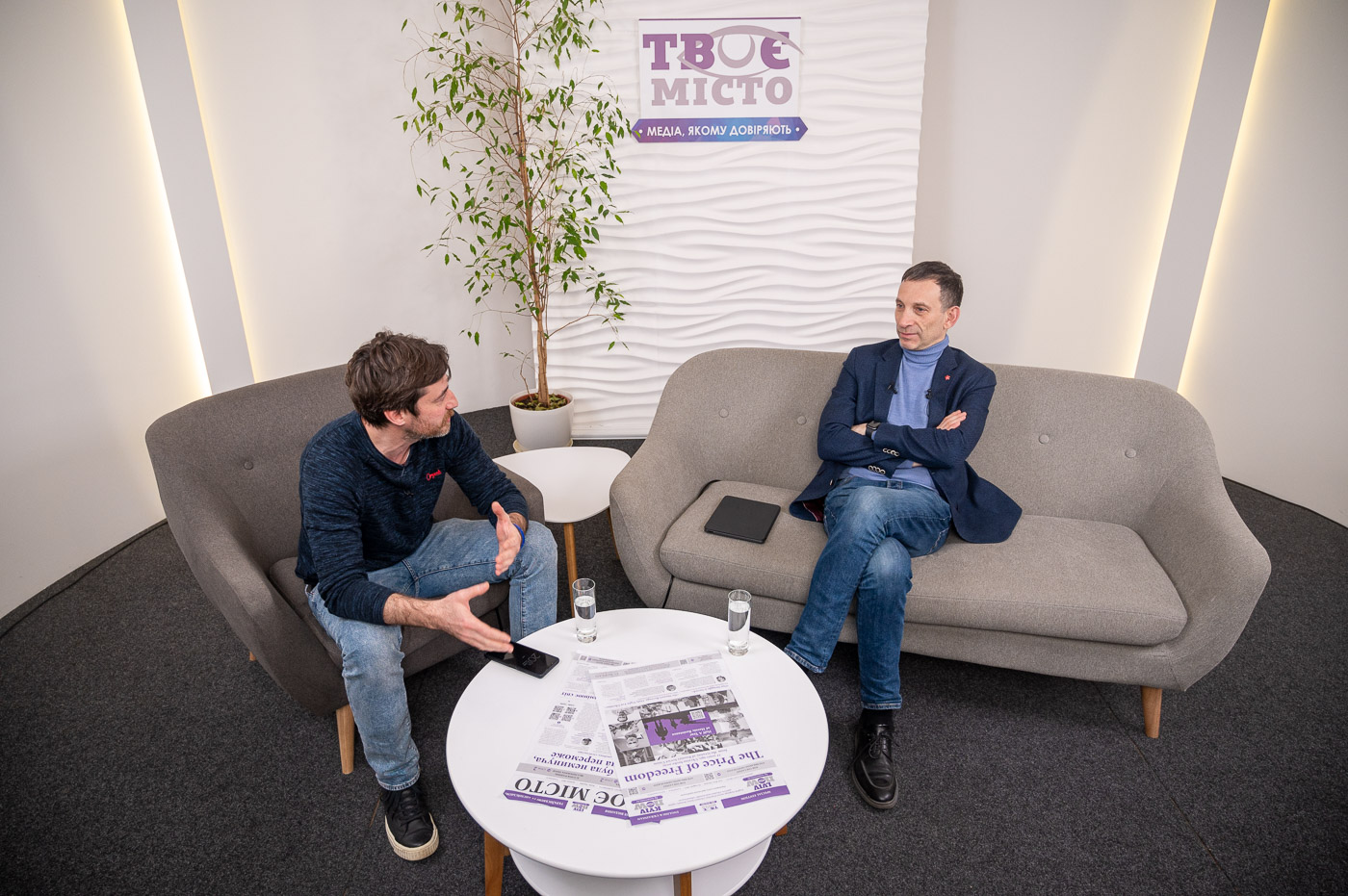
But it is a choice.
Yes, it’s everyone’s choice. I don’t have a choice because I’m Jewish. Didn’t Shevchenko have a choice? He could live peacefully in the Russian-speaking world. And Ivan Franko? He could live in a Polish-speaking world. And Lesya Ukrainka?...
[Ukrainian writer] Ivan Franko knew German well, he could live in a German-speaking world.
Just like Olha Kobylyanska, who translated her works from German.
Historian Yaroslav Hrytsak writes that everyone once chose this identity, no one was Ukrainian more than 100 years ago. But this can be said about any identity.
Of course. Couldn’t Karel Čapek or Bohumil Grabal be German writers, didn’t they know the German language? And Joseph Roth, who became a German writer, could have been Jewish. Each person chooses something. But if you want to be here... I’m sorry, it’s like a question of sexual orientation: you can’t choose it, even if you really want to love someone. You’ll think Marlon Brando is the most beautiful actor in the world. But if you love women, you won’t sleep with Brando, even if you really want to, there’s no way. And vice versa: you can see how beautiful Sophia Loren is, but if you don’t like women, you’ll never be with her.
I don’t understand how, being in Ukraine and growing up here, one can choose Russia. Unlike many people who live here, I lived and worked in Russia, had a wonderful professional career. But I didn’t even think of such a thing, because I thought that Ukraine was what was given to me. People choose something because it is their own, native. Jewish fate before the creation of Israel and military victories was always tragic. But someone chose Christianity, and someone disappeared in the fires of pogroms [violent acts against Jews in the Eastern Europe]. But thanks to the fact that people chose what’s their own, we are a nation. The same can be said about Ukrainians: they were Russified, Polonized, convinced that they are stupid countrymen who weren’t capable of anything. But Ukrainians have always been people who made their own choices, such were the majority. And finally, it became the state-building majority.
Andrii Saichuk spoke
Text by Marichka Ilyina, Translated by Vitalii Holich
Photo by Ivan Stanislavskyi, Tvoe Misto
Full or partial republication of the text without the consent of the editors is prohibited and will be considered a violation of copyright.
Follow us on Facebook and Instagram. Lviv Now is an English-language website for Lviv, Ukraine’s «tech-friendly cultural hub.» It is produced by Tvoe Misto («Your City») media-hub, which also hosts regular problem-solving public forums to benefit the city and its people.


